-

Jun
23
Interpretive Summary: Body weight of newborn and suckling piglets affects their intestinal gene expression
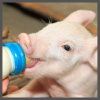
Under hyperprolific situations, piglets must deal with a reduced birthweight and a severe sibling competition for nutrients. Therefore, light body weight newborn and suckling piglets may also have physiological disadvantages compared to their middle-weight littermates.
Read more
-

Jun
23
Interpretive Summary: ASAS-NANP symposium: mathematical modeling in animal nutrition: limitations and potential next steps for modeling and modelers in the animal sciences

Modeling in the animal sciences has received a boost by large-scale adoption of sensor technology, increased computing power, and the further development of artificial intelligence (AI) in the form of machine learning (ML) and deep learning (DL) models.
Read more
-

Jun
23
Interpretive Summary: Genetic aspects of piglet survival and related traits: a review
.png?sfvrsn=488652d1_0)
Piglet survival is under genetic control and there are clear differences between individuals in their ability to live. Animals that do not survive their first weeks will obviously not reproduce as this is natural selection. Animals that survive still harbor relevant genetic differences.
Read more
-

Jun
23
Interpretive Summary: Review: Physiology and nutrition of late gestating and transition sows
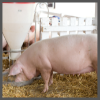
The transition period is a short period of the reproductive cycle spanning from 7–10 d prepartum to 3–5 d postpartum in sows. Nonetheless, it is highly important for the productivity of sows because it is when the majority of piglet deaths occur.
Read more
-

Jun
23
Interpretive Summary: Improving young pig welfare on-farm: The Five Domains Model

Considering welfare through the “neonatal and nursery pig perspective” is an exciting approach. Overlaying this with the Five Domains Model, as we suggest in this review, points to practical on-farm improvements that provide each pig the opportunity to experience positive mental states.
Read more
-

Jun
23
Interpretive Summary: Biological sex: an understudied factor driving disease susceptibility in pigs
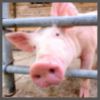
It has become increasingly evident that females and males differ in their susceptibility to disease and mortality. Females typically have higher survivability rates during pandemics and environmental challenges compared with males.
Read more
-

Jun
23
Interpretive Summary: Impact of housing environment and management on pre-/post-weaning piglet productivity
.png?sfvrsn=ad8652d1_0)
Achievement of pre-/post-weaning piglet success requires careful environmental management to ensure the thermal needs of the pigs are adequately met to reduce stress and promote livability, performance, and health.
Read more
-

Jun
23
Interpretive Summary: Gilt development to improve offspring performance and survivability
.png?sfvrsn=858652d1_0)
Proper gilt development influences offspring performance and survivability by increasing gilt longevity and colostrum and milk production. Gilt development success starts in selecting gilts heavier than 1 kg at birth, prioritizing colostrum and milk intake, and weaning at 24 d of age or older.
Read more
-

Jun
23
Interpretive Summary: Effects of administration of a growth promoting implant during the suckling phase or at weaning on growth, reproduction, and ovarian development in replacement heifers grazing native range
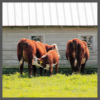
Management of beef females during the first year of life can impact fertility and reproductive longevity. Cattle producers can improve calf weight gains by using growth promoting implants; however, to be applicable, they must not negatively impact heifer reproductive performance or development.
Read more
-

Jun
16
Interpretive Summary: ASAS-NANP symposium: mathematical modeling in animal nutrition: the progression of data analytics and artificial intelligence in support of sustainable development in animal science

Data analytics have evolved remarkably. This paper discussed the evolution of data analytics from a competitive advantage perspective within academia and illustrated the combination of different advanced technological systems in developing hybrid intelligent mechanistic models (HIMM).
Read more
-

Jun
16
Interpretive Summary: Genetic relationships between efficiency traits and gut microbiota traits in growing pigs being fed with a conventional or a high-fiber diet
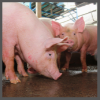
The link between the composition of the gut microbiota, i.e the composition of microorganisms in the gut, in pigs and their feed efficiency, i.e. their ability to utilize nutrients, as well as their ability to digest were studied from a genetic point of view.
Read more
-

Jun
16
Interpretive Summary: Model definition for genetic evaluation of purebred and crossbred lambs including heterosis
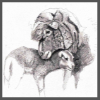
Crossbreeding is common in commercial sheep enterprises. It allows breeds with different attributes to be combined to generate crossbred progeny tailored to production environments and customer preferences.
Read more
-

Jun
16
Interpretive Summary: Effects of management strategies during early lactation and weaning on etiological agents of ovine subclinical mastitis and antimicrobial susceptibility of milk-derived bacterial isolates

The objectives of this study were to quantify the prevalence of subclinical mastitis, evaluate the impact of bedding treatments on subclinical mastitis, evaluate the efficacy of weaning treatments, and identify levels of antimicrobial resistance in milk-derived bacteria.
Read more
-

Jun
16
Interpretive Summary: Evaluation of lipid sources and emulsifier addition on fat digestion of yellow-feathered broilers
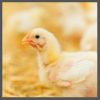
Considering that commercial diets generally contain 3% to 8% added lipids to provide up to 20% metabolizable energy (ME) in broiler diets, the addition of emulsifier in diets was believed to improve the digestibility of fat.
Read more
-

Jun
16
Interpretive Summary: Effects of dietary vitamin E and fat supplementation in growing-finishing swine fed to a heavy slaughter weight of 150 kg: II. Tissue fatty acid profile, vitamin E concentrations, and antioxidant capacity of plasma and tissue

The study evaluated vitamin E (VE) supplementation and fat source on fatty acid (FA) composition and VE concentrations in pigs. Three fat sources with distinctive fatty acid profiles were used; VE levels were 11 (the requirement estimate) and 200 (a high level to assure any responses could be seen) ppm.
Read more
-

Jun
16
Interpretive Summary: Effect of limestone solubility on mineral digestibility and bone ash in nursery pigs fed diets containing graded level of inorganic phosphorus or increasing dose of a novel consensus bacterial 6-phytase variant
.png?sfvrsn=d3774dd1_0)
Microbial phytase is added to commercial pig diets to increase phosphorus (P) availability and reduce P excretion. It is known that an excess of calcium (Ca), mostly sourced from limestone, can affect phytase efficacy.
Read more
-

Jun
16
Interpretive Summary: Evaluation of essential fatty acids in lactating sow diets on sow reproductive performance, colostrum and milk composition, and piglet survivability
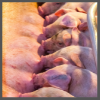
Supplemental fat sources are an effective and widely accepted strategy to increase energy density of sow lactation diets that can also provide essential fatty acids such as linoleic acid (LA) and α-linolenic acid (ALA). Currently, the effects of supplemental LA and ALA provided shortly before farrowing on colostrum and milk composition are not fully understood.
Read more
-

Jun
16
Interpretive Summary: Short Communication: Influence of estrus activity and reproductive tract size and position scores on fertility in Bos indicus and Bos taurus suckled beef cows
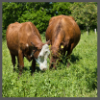
The livelihood of a cow-calf producer relies on reproductively sound cattle that give birth to live offspring once a year. Two factors, pregnancy rate and pregnancy loss, are informative measures of fertility.
Read more
-

Jun
09
Interpretive Summary: VTag: a semi-supervised pipeline for tracking pig activity with a single top-view camera
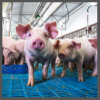
Collecting detailed measurements of animals through cameras has become an important focus with the rising demand for meat production in the swine industry.
Read more
-

Jun
09
Interpretive Summary: Effects of yeast-based pre- and probiotics in lactation diets of sows on litter performance and antimicrobial resistance of fecal Escherichia coli of sows
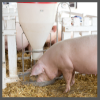
Feeding sows live yeast and yeast extracts from day 110 of gestation through lactation tended to increase lactation feed intake but did not affect any other sow or litter performance criteria.
Read more
 JunInterpretive Summary: Body weight of newborn and suckling piglets affects their intestinal gene expression
JunInterpretive Summary: Body weight of newborn and suckling piglets affects their intestinal gene expression Under hyperprolific situations, piglets must deal with a reduced birthweight and a severe sibling competition for nutrients. Therefore, light body weight newborn and suckling piglets may also have physiological disadvantages compared to their middle-weight littermates.
Under hyperprolific situations, piglets must deal with a reduced birthweight and a severe sibling competition for nutrients. Therefore, light body weight newborn and suckling piglets may also have physiological disadvantages compared to their middle-weight littermates. JunInterpretive Summary: ASAS-NANP symposium: mathematical modeling in animal nutrition: limitations and potential next steps for modeling and modelers in the animal sciences
JunInterpretive Summary: ASAS-NANP symposium: mathematical modeling in animal nutrition: limitations and potential next steps for modeling and modelers in the animal sciences Modeling in the animal sciences has received a boost by large-scale adoption of sensor technology, increased computing power, and the further development of artificial intelligence (AI) in the form of machine learning (ML) and deep learning (DL) models.
Modeling in the animal sciences has received a boost by large-scale adoption of sensor technology, increased computing power, and the further development of artificial intelligence (AI) in the form of machine learning (ML) and deep learning (DL) models. JunInterpretive Summary: Genetic aspects of piglet survival and related traits: a review
JunInterpretive Summary: Genetic aspects of piglet survival and related traits: a review.png?sfvrsn=488652d1_0) Piglet survival is under genetic control and there are clear differences between individuals in their ability to live. Animals that do not survive their first weeks will obviously not reproduce as this is natural selection. Animals that survive still harbor relevant genetic differences.
Piglet survival is under genetic control and there are clear differences between individuals in their ability to live. Animals that do not survive their first weeks will obviously not reproduce as this is natural selection. Animals that survive still harbor relevant genetic differences. JunInterpretive Summary: Review: Physiology and nutrition of late gestating and transition sows
JunInterpretive Summary: Review: Physiology and nutrition of late gestating and transition sows The transition period is a short period of the reproductive cycle spanning from 7–10 d prepartum to 3–5 d postpartum in sows. Nonetheless, it is highly important for the productivity of sows because it is when the majority of piglet deaths occur.
The transition period is a short period of the reproductive cycle spanning from 7–10 d prepartum to 3–5 d postpartum in sows. Nonetheless, it is highly important for the productivity of sows because it is when the majority of piglet deaths occur. JunInterpretive Summary: Improving young pig welfare on-farm: The Five Domains Model
JunInterpretive Summary: Improving young pig welfare on-farm: The Five Domains Model Considering welfare through the “neonatal and nursery pig perspective” is an exciting approach. Overlaying this with the Five Domains Model, as we suggest in this review, points to practical on-farm improvements that provide each pig the opportunity to experience positive mental states.
Considering welfare through the “neonatal and nursery pig perspective” is an exciting approach. Overlaying this with the Five Domains Model, as we suggest in this review, points to practical on-farm improvements that provide each pig the opportunity to experience positive mental states. JunInterpretive Summary: Biological sex: an understudied factor driving disease susceptibility in pigs
JunInterpretive Summary: Biological sex: an understudied factor driving disease susceptibility in pigs It has become increasingly evident that females and males differ in their susceptibility to disease and mortality. Females typically have higher survivability rates during pandemics and environmental challenges compared with males.
It has become increasingly evident that females and males differ in their susceptibility to disease and mortality. Females typically have higher survivability rates during pandemics and environmental challenges compared with males. JunInterpretive Summary: Impact of housing environment and management on pre-/post-weaning piglet productivity
JunInterpretive Summary: Impact of housing environment and management on pre-/post-weaning piglet productivity.png?sfvrsn=ad8652d1_0) Achievement of pre-/post-weaning piglet success requires careful environmental management to ensure the thermal needs of the pigs are adequately met to reduce stress and promote livability, performance, and health.
Achievement of pre-/post-weaning piglet success requires careful environmental management to ensure the thermal needs of the pigs are adequately met to reduce stress and promote livability, performance, and health. JunInterpretive Summary: Gilt development to improve offspring performance and survivability
JunInterpretive Summary: Gilt development to improve offspring performance and survivability.png?sfvrsn=858652d1_0) Proper gilt development influences offspring performance and survivability by increasing gilt longevity and colostrum and milk production. Gilt development success starts in selecting gilts heavier than 1 kg at birth, prioritizing colostrum and milk intake, and weaning at 24 d of age or older.
Proper gilt development influences offspring performance and survivability by increasing gilt longevity and colostrum and milk production. Gilt development success starts in selecting gilts heavier than 1 kg at birth, prioritizing colostrum and milk intake, and weaning at 24 d of age or older. JunInterpretive Summary: Effects of administration of a growth promoting implant during the suckling phase or at weaning on growth, reproduction, and ovarian development in replacement heifers grazing native range
JunInterpretive Summary: Effects of administration of a growth promoting implant during the suckling phase or at weaning on growth, reproduction, and ovarian development in replacement heifers grazing native range Management of beef females during the first year of life can impact fertility and reproductive longevity. Cattle producers can improve calf weight gains by using growth promoting implants; however, to be applicable, they must not negatively impact heifer reproductive performance or development.
Management of beef females during the first year of life can impact fertility and reproductive longevity. Cattle producers can improve calf weight gains by using growth promoting implants; however, to be applicable, they must not negatively impact heifer reproductive performance or development. JunInterpretive Summary: ASAS-NANP symposium: mathematical modeling in animal nutrition: the progression of data analytics and artificial intelligence in support of sustainable development in animal science
JunInterpretive Summary: ASAS-NANP symposium: mathematical modeling in animal nutrition: the progression of data analytics and artificial intelligence in support of sustainable development in animal science Data analytics have evolved remarkably. This paper discussed the evolution of data analytics from a competitive advantage perspective within academia and illustrated the combination of different advanced technological systems in developing hybrid intelligent mechanistic models (HIMM).
Data analytics have evolved remarkably. This paper discussed the evolution of data analytics from a competitive advantage perspective within academia and illustrated the combination of different advanced technological systems in developing hybrid intelligent mechanistic models (HIMM). JunInterpretive Summary: Genetic relationships between efficiency traits and gut microbiota traits in growing pigs being fed with a conventional or a high-fiber diet
JunInterpretive Summary: Genetic relationships between efficiency traits and gut microbiota traits in growing pigs being fed with a conventional or a high-fiber diet The link between the composition of the gut microbiota, i.e the composition of microorganisms in the gut, in pigs and their feed efficiency, i.e. their ability to utilize nutrients, as well as their ability to digest were studied from a genetic point of view.
The link between the composition of the gut microbiota, i.e the composition of microorganisms in the gut, in pigs and their feed efficiency, i.e. their ability to utilize nutrients, as well as their ability to digest were studied from a genetic point of view. JunInterpretive Summary: Model definition for genetic evaluation of purebred and crossbred lambs including heterosis
JunInterpretive Summary: Model definition for genetic evaluation of purebred and crossbred lambs including heterosis Crossbreeding is common in commercial sheep enterprises. It allows breeds with different attributes to be combined to generate crossbred progeny tailored to production environments and customer preferences.
Crossbreeding is common in commercial sheep enterprises. It allows breeds with different attributes to be combined to generate crossbred progeny tailored to production environments and customer preferences. JunInterpretive Summary: Effects of management strategies during early lactation and weaning on etiological agents of ovine subclinical mastitis and antimicrobial susceptibility of milk-derived bacterial isolates
JunInterpretive Summary: Effects of management strategies during early lactation and weaning on etiological agents of ovine subclinical mastitis and antimicrobial susceptibility of milk-derived bacterial isolates The objectives of this study were to quantify the prevalence of subclinical mastitis, evaluate the impact of bedding treatments on subclinical mastitis, evaluate the efficacy of weaning treatments, and identify levels of antimicrobial resistance in milk-derived bacteria.
The objectives of this study were to quantify the prevalence of subclinical mastitis, evaluate the impact of bedding treatments on subclinical mastitis, evaluate the efficacy of weaning treatments, and identify levels of antimicrobial resistance in milk-derived bacteria. JunInterpretive Summary: Evaluation of lipid sources and emulsifier addition on fat digestion of yellow-feathered broilers
JunInterpretive Summary: Evaluation of lipid sources and emulsifier addition on fat digestion of yellow-feathered broilers Considering that commercial diets generally contain 3% to 8% added lipids to provide up to 20% metabolizable energy (ME) in broiler diets, the addition of emulsifier in diets was believed to improve the digestibility of fat.
Considering that commercial diets generally contain 3% to 8% added lipids to provide up to 20% metabolizable energy (ME) in broiler diets, the addition of emulsifier in diets was believed to improve the digestibility of fat. JunInterpretive Summary: Effects of dietary vitamin E and fat supplementation in growing-finishing swine fed to a heavy slaughter weight of 150 kg: II. Tissue fatty acid profile, vitamin E concentrations, and antioxidant capacity of plasma and tissue
JunInterpretive Summary: Effects of dietary vitamin E and fat supplementation in growing-finishing swine fed to a heavy slaughter weight of 150 kg: II. Tissue fatty acid profile, vitamin E concentrations, and antioxidant capacity of plasma and tissue The study evaluated vitamin E (VE) supplementation and fat source on fatty acid (FA) composition and VE concentrations in pigs. Three fat sources with distinctive fatty acid profiles were used; VE levels were 11 (the requirement estimate) and 200 (a high level to assure any responses could be seen) ppm.
The study evaluated vitamin E (VE) supplementation and fat source on fatty acid (FA) composition and VE concentrations in pigs. Three fat sources with distinctive fatty acid profiles were used; VE levels were 11 (the requirement estimate) and 200 (a high level to assure any responses could be seen) ppm. JunInterpretive Summary: Effect of limestone solubility on mineral digestibility and bone ash in nursery pigs fed diets containing graded level of inorganic phosphorus or increasing dose of a novel consensus bacterial 6-phytase variant
JunInterpretive Summary: Effect of limestone solubility on mineral digestibility and bone ash in nursery pigs fed diets containing graded level of inorganic phosphorus or increasing dose of a novel consensus bacterial 6-phytase variant.png?sfvrsn=d3774dd1_0) Microbial phytase is added to commercial pig diets to increase phosphorus (P) availability and reduce P excretion. It is known that an excess of calcium (Ca), mostly sourced from limestone, can affect phytase efficacy.
Microbial phytase is added to commercial pig diets to increase phosphorus (P) availability and reduce P excretion. It is known that an excess of calcium (Ca), mostly sourced from limestone, can affect phytase efficacy. JunInterpretive Summary: Evaluation of essential fatty acids in lactating sow diets on sow reproductive performance, colostrum and milk composition, and piglet survivability
JunInterpretive Summary: Evaluation of essential fatty acids in lactating sow diets on sow reproductive performance, colostrum and milk composition, and piglet survivability Supplemental fat sources are an effective and widely accepted strategy to increase energy density of sow lactation diets that can also provide essential fatty acids such as linoleic acid (LA) and α-linolenic acid (ALA). Currently, the effects of supplemental LA and ALA provided shortly before farrowing on colostrum and milk composition are not fully understood.
Supplemental fat sources are an effective and widely accepted strategy to increase energy density of sow lactation diets that can also provide essential fatty acids such as linoleic acid (LA) and α-linolenic acid (ALA). Currently, the effects of supplemental LA and ALA provided shortly before farrowing on colostrum and milk composition are not fully understood. JunInterpretive Summary: Short Communication: Influence of estrus activity and reproductive tract size and position scores on fertility in Bos indicus and Bos taurus suckled beef cows
JunInterpretive Summary: Short Communication: Influence of estrus activity and reproductive tract size and position scores on fertility in Bos indicus and Bos taurus suckled beef cows The livelihood of a cow-calf producer relies on reproductively sound cattle that give birth to live offspring once a year. Two factors, pregnancy rate and pregnancy loss, are informative measures of fertility.
The livelihood of a cow-calf producer relies on reproductively sound cattle that give birth to live offspring once a year. Two factors, pregnancy rate and pregnancy loss, are informative measures of fertility. JunInterpretive Summary: VTag: a semi-supervised pipeline for tracking pig activity with a single top-view camera
JunInterpretive Summary: VTag: a semi-supervised pipeline for tracking pig activity with a single top-view camera Collecting detailed measurements of animals through cameras has become an important focus with the rising demand for meat production in the swine industry.
Collecting detailed measurements of animals through cameras has become an important focus with the rising demand for meat production in the swine industry. JunInterpretive Summary: Effects of yeast-based pre- and probiotics in lactation diets of sows on litter performance and antimicrobial resistance of fecal Escherichia coli of sows
JunInterpretive Summary: Effects of yeast-based pre- and probiotics in lactation diets of sows on litter performance and antimicrobial resistance of fecal Escherichia coli of sows Feeding sows live yeast and yeast extracts from day 110 of gestation through lactation tended to increase lactation feed intake but did not affect any other sow or litter performance criteria.
Feeding sows live yeast and yeast extracts from day 110 of gestation through lactation tended to increase lactation feed intake but did not affect any other sow or litter performance criteria.



